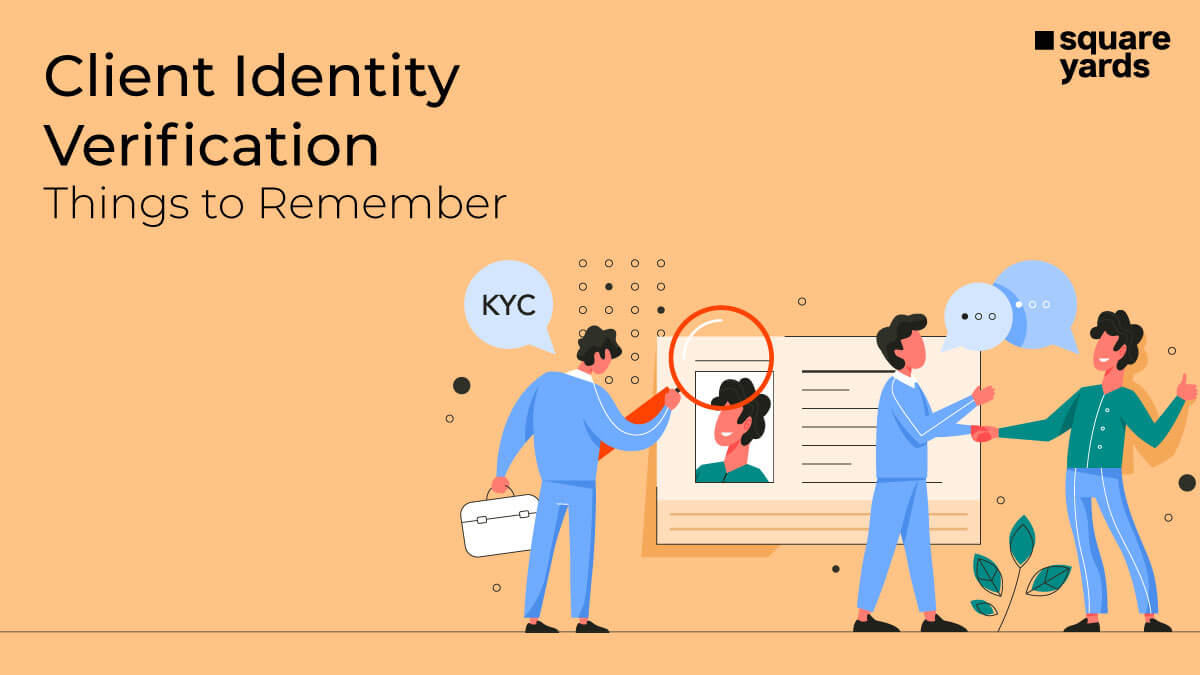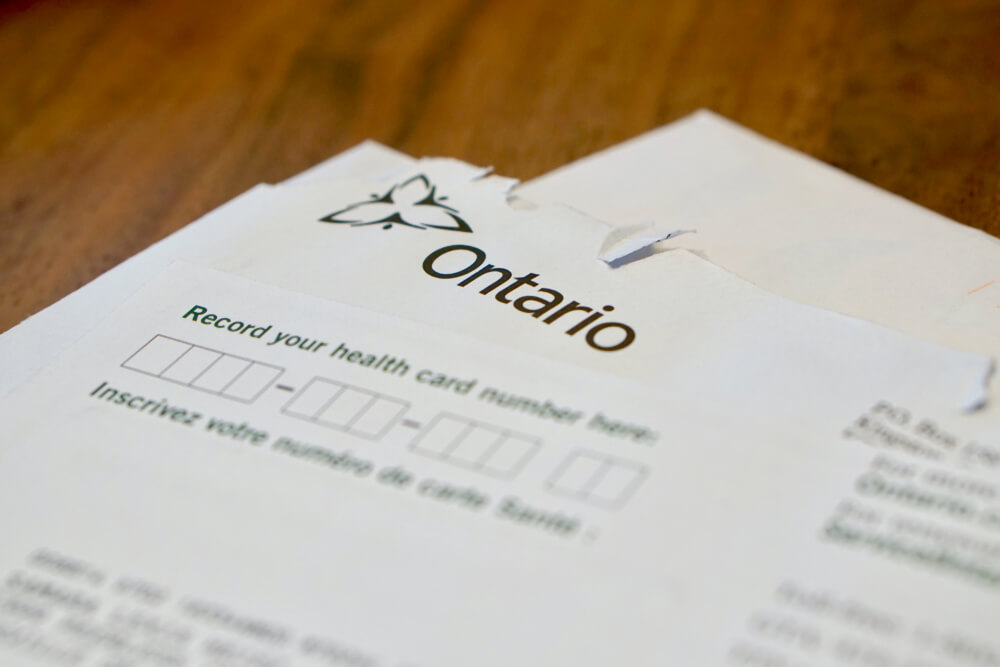Client identification verification has been a important side of the dice for every industry. Every party involved in the real estate negotiation process, right from the realtor to the lender to the advocate, have some real estate required document that need to be met. These identification requirements should be met with respect to verifying the customer or client’s identity. As we move with words, we are going to understand more about the real estate required documents in identification verification.
Acceptable Forms of Identification Verification
For real estate required documents for identification, there must be a valid proofs with a unique identifier number. This number is provided or issued by the territorial government, federal government or provincial government and cannot be expired. Acceptable forms of identification and verification might also include a driver’s license, residency, passport, etc. The realtor accepts and requires only this identification requirement from any one government-issued card.
Aligning with the law, realtors can go ahead a make a photocopy of the identification card provided or can simply bullet list all facts on the card. It is important to understand and note that realtors should not consider a SIN (Social Insurance) card as concrete identification verification.
All the real estate required documents mentioned above are supposed to be fulfilled for every transaction made and a realtor is involved with, irrespective of the clients they are representing (directly or indirectly). By law, realtors are also expected to keep all of this information on record, for at least 5 years at their brokerage office. However, this information is kept confidential and is only collected to coordinate with the federal legislation and is not used in any other way or leaked as a matter of fact.
Lender Real Estate Required Documents Identification
When clients are asked to sign any mortgage documents with their respective lawyers, the lenders might require the advocate to confirm the identity of the client. This is done by including a photocopy of two pieces of identification, while complying with Canada’s Proceeds of Crime (Money Laundering) and the Terrorist Financing Act. Advocates might also require you to sign a form that certifies the actions of the lawyer to personally examine the documents of identification.
One of the most important points to consider include all lenders outlining their mortgage instructions and the types of identification that are considered valid. There are two different forms of real estate required document including primary and secondary and the lawyers are required to obtain one primary and one secondary, or two primary pieces. It is also important to note that one piece of identification must come from the list of primary documents and if the real estate required document is not received, the lender won’t be releasing the mortgage funds.
The bullets below highlight the primary and secondary identification:
-
Primary Form of Identification
-
- Alberta Registries
- A valid driver’s license issued in Canada
- Current Canadian passport
- A permanent card of residency or citizenship or certificate of neutralisation
- A Federal Firearms license
- Indian Status certification, issued by the Canadian government
- Permanent Resident card or citizenship and Immigration Canada Form IMM1000 or IMM1442
A card or document with your photograph and signature, issued by the following:
-
- Service New Brunswick
- Insurance Corporation of British Columbia
- Saskatchewan Government Insurance
- Department of Transportation of the Northwest Territories
- Department of Transportation and Public Works of Prince Edward Island
- Department of Community Government and Transportation of the Territory of Nunavut
- Department of Government Services and Lands of Newfoundland and Labrador
-
Secondary Form of Identification
- A social insurance number (SIN) card issued by the Canadian Government
- An old age security card that is issued by the Canadian government
- A birth certificate issued in Canada
- An employee identification card with a photograph from an employer, who is well known in the community.
- A client card of a signed Canadian Institute for the Blind (CNIB), along with a photograph.
- A signed ABM (automatic banking machine) card, a credit card or a client card that is issued by a Canadian Payments’ Association member that shows the name of the individual with their signature.
Agent and Real Estate Required Documents
As a real estate agent, you are responsible for certain legislation and regulations related to home buying process, confirming your customer’s identity and personal identification information. Since June 23, 2008, the real estate agents have been held on the spot to collect personal identification information from both sellers and buyers. This information is also collated to complete a report on every transaction made during the entire process, even the ones that were less than $10,000.
The majority of real estate required documents that are applied to real estate agents under this legislation would include:
-
- If there is any third party involved in this transaction, a realtor must look after their identification information.
- When a buyer/seller is conducting a private transaction involving a real estate agent, it represents that the other party is also involved in the transaction. This also justifies the role of the realtor to verify the private seller/buyer’s information.
- Documentation of any personal information and identity proof of clients in every transaction.
- If the client is based in another city, province or country, and a one-on-one meeting is not possible, then the realtors have to communicate with an agent in that area in order to identify third parties, hence verifying the accuracy of personal information.
- In relation to the clients who are realtors, corporations must be aware and contain the confirmation of the corporation’s existence, the name of the corporation and its address, the director’s names and any other related corporate documentation that completes the Client Information Record.
- Any time that there are funds exchanged or deposited in a transaction, a realtor should take responsibility to complete a report that outlines the received amount. The process of obtaining must also be clarified, irrespective of the monetary amount’s value.
What if the Client Doesn’t Possess a Photo Identification Verification?
If a client does not possess any accepted form of photo identification, you should educate them about applying for an Ontario Photo Card(a government-issued photo identification, for people who are sixteen years or older and don’t drive, for making government, business or financial services accessible).
Application for an Ontario Photo Card
Any application for an Ontario Photo Card can be processed at any local service Ontario Office. You can go ahead and get your copy of the application by simply downloading it from the “Service Ontario” website. This card can only be obtained:
-
- If you are 16 or 16+ years of age
- If you do not drive
- If you are a resident of Ontario
For preventing or avoiding fraudulent actions, one is not allowed to hold both- driver’s license and an Ontario photo card. However, if you do have a driver’s license, and want to get an Ontario photo card, you have to sanction your driver’s license. Your license might be cancelled when you apply for your photo card.
Costs Associated with an Ontario Photo Card
-
- Review an Ontario photo card: $35
- Replace a lost, damaged or stolen Ontario Photo Card: $10
- Retake a photo for an Ontario Photo Card: $10
- Order an Ontario Photo Card: $35
- Change information on an Ontario Photo Card: Free
- Add or remove an age identifier: $10
All payments can be made by cash, a certified cheque, a debit or credit card. Once you have made the payment for your card, you should anticipate to receive it within four to six weeks via mail. However, the card will expire five years from the date, unless you plan on renewing it. In order to renew your card, you must have and fill out a renewal application, which must be dropped at the Service Ontario Centre.
You May Also Read
| Invest in the Quebec Real Estate Market | Guide To Homeownership As An Investment |
| Real Estate Agent’s Fees And Commission | Seven Major Real Estate Frauds |
FREQUENTLY ASKED QUESTION (FAQs)
Any ID document including passports, driver’s licenses, health card, government-issued ID card, Canadian military identification cards, etc can be used as ID in Canada.
Realtors do need to comply with the law and they must record, obtain and retain all personal data of their clients. This also includes information like the date of birth and occupation. In order to do this, they might ask you for a government-issued identification document such as a passport, a residency card or driver’s license.
If you do not have an ID, then you can prove your identity with your original birth certificate or even a national insurance card that is accepted. This must be accompanied by a passport-size photo, signed by someone who can confirm your identity.
A Bank Statement. Government-issued cheque or a cheque stub with the person’s name and address on it is considered residency proof in Canada.
FINTRAC is the Financial Transactions and Reports Analysis Centre of Canada. The Role of FINTRAC is to provide CSIS with financial diligence to assist the agency in completing the mandatory investigation of threats to Canadian security.
The real estate agent will only verify your identity with your Personal ID. What can be used as an ID in Canada?
Why do realtors need ID?
How can I prove my identity without ID?
What is considered proof of residency in Canada?
What is FINTRAC?
What will real estate agent do with my personal ID?







































